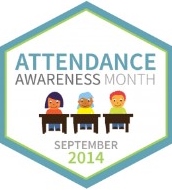A new report from the Learning Policy Institute cites that about 90 percent of teacher vacancies are due to teachers leaving the profession, and posits that a national teacher shortage could be alleviated by improving retention. Further, by retaining experienced teachers, school districts could also […]
Category: Research
Research
California underperforms in protecting student athletes, report finds
Although California fields the second largest number of high school athletes nationally at just under one million students, the state has placed next to last in rankings for public high school athletic safety, according to a recent report. The report from the University of Connecticut’s […]
New survey report shares insights about parent perceptions
A recent survey conducted by the nonprofit Learning Heroes found that nine in 10 parents think their children perform at grade level in reading and mathematics. In reality, only one in three students achieve those mastery levels. In response to this disconnect, Learning Heroes recently […]
New report on STEM deserts shows troubling trend for high-poverty schools
If you were to ask someone on the street today what they think the future job market will look like, it is likely you will hear the word “STEM.” The Science, Technology, Engineering and Mathematics field is growing at a dramatic rate, and today’s students […]
Rural education report reveals both achievement and need
Some may assume that rural schools are the small minority, but the numbers don’t lie — more than one in four of the nation’s public schools can be categorized as rural, and almost one in six American students live in a rural area. California is […]
New research report shines light on school crime and safety
All California students have a right to feel welcomed and be free from emotional and physical harm at their public schools. School safety is one of the most important elements to consider in order to ensure that an environment is conducive to learning. According to […]
Finding meaning in California’s constitutional guarantee of education
by Keith Bray All children can succeed, but not all children have equal opportunity to do so. A child’s background and social station continue to play an inordinate role in his or her scholastic outcomes, both in California and across the nation. Schools, given the […]
Two Languages: Multiple Benefits
by Julie Maxwell-Jolly, Programs & Policy Officer In an increasingly globalized economy, California will need a population with the skills and understanding to thrive in multiple settings, languages, and cultures. One way to prepare our young people for this interconnected future is by providing them […]
Reducing Chronic Absence: An Overlooked Opportunity for Raising Student Achievement
September is Attendance awareness month! To celebrate, we have invited four guest bloggers to provide insight throughout the month about the importance of student attendance. In this first installment, guest blogger Hedy Chang explores how reducing chronic absence can raise student achievement. By Hedy Chang, […]
New suspension/expulsion stats confirm use of discipline alternatives
The report that suspensions are down in California schools is welcome news to educators, students and their families—and a focus on alternative disciplinary strategies is getting the credit. A reduction in the number of actions for willful defiance (called student defiance in the official report) and a shift to programs like restorative justice that promote respect and personal responsibility have helped reduce expulsions by 12.3 percent and suspensions by 14.1 percent during 2012-13, State Superintendent of Public Instruction Tom Torlakson announced last week.










